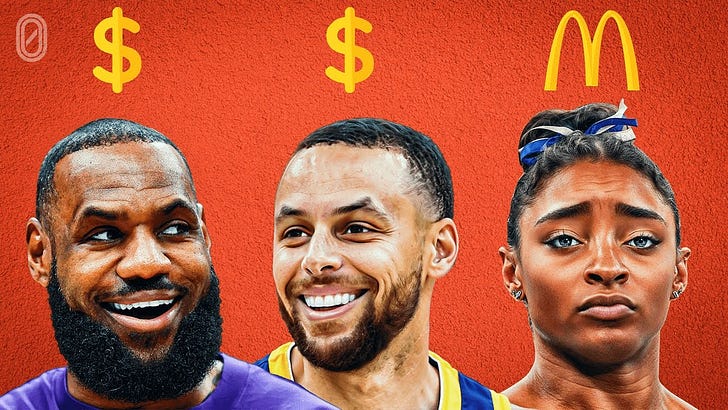Why So Many Olympic Athletes Go Broke
The average athlete at Paris will earn less than a worker at McDonalds...
Welcome to Athletic Interest,
The Olympics is big business. The International Olympic Committee (IOC) makes more than $7 Billion over each games cycle. This is thanks mainly to sponsorship deals with brands like Coca Cola and P&G.
But what about the athletes? The stars of the show, the ones that fill the stadiums and keep billions glued to their screens. This spectacle would be far less profitable without them. How much do they get paid for their part?
A grand total of…$0.
The IOC refuses to pay the athletes. Well at least directly. They do give the money to national associations who then pay the athletes. But the point is, the big share of the revenue is not going to the athletes.
Until recently, it even banned them from being sponsored during the games. For most of the athletes, it would be more profitable to work at the McDonald’s just outside the stadium than to train and compete in their events.
That’s not true for everyone. The big names are paid well by sponsors, and some countries give bonuses to medal winners. But for every Usain Bolt or Simone Biles there are thousands of lesser known athletes that genuinely struggle to get by.
How did we get into a position where the most important actors on the biggest stage in the world are going broke? As sport meets the modern world and athletes demand change, the IOC’s rules (which can be traced to a Victorian law blocking poor people from sport) are starting to crack.
Learn more about this in our latest video.
Before you go! To get into the spirit of the Olympics, we have started posting again on Instagram.
Our goal is to help you follow the Olympics (and everything beyond) with a new perspective, explaining the most interesting stats and stories from the intersection between business and sport.
Check it out here and follow us!



